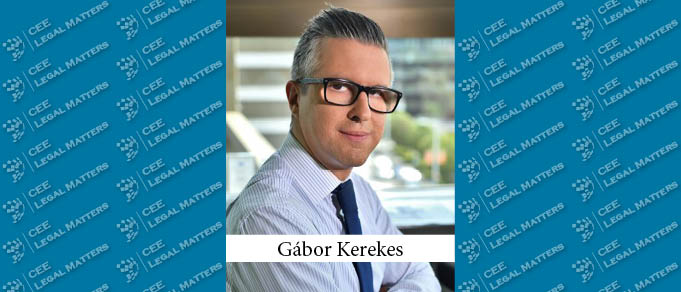Whichever product or service you are discussing, there are certain names, images or slogans that immediately come to mind. When setting up a business, it is crucial for any founder that the brand they represent has a distinctive, recognizable, ringing name. Building a solid business reputation is a long and bumpy road, but safeguarding legal protection for a brand name or logo to ensure exclusivity is much easier than many people think: the solution lies in trademark protection.
Many are familiar with it, yet only a few know it
Occasionally, the public may becomes aware of cases - just take the example of the Rubik's Cube or Radio Juventus (or as of now, Youventus) - where a dispute has resulted in the loss of exclusive use rights of a sign, even after several decades. This can be a devastating blow to any business, as customers often associate the product or service offered by the name or other distinctive feature. Despite this glaring risk, few people in Hungary think of taking the legal steps necessary to obtain exclusivity while developing the branding elements. The lack of awareness is evident in the statistics: according to the Hungarian Intellectual Property Office (SZTNH), a mere 3.4% of Hungarian businesses possesses some form of intellectual property protection, while the number of trademark applications in 2022 have fallen by almost a fifth compared to previous years.
It's worth hurrying...
The primary advantage of obtaining a trademark lies in its simplicity. Once you have an idea, a name, a logo or a slogan to launch your business on the market, there is no need to delay: you can initiate the trademark application process immediately - even before you actually use it. The filing date holds great significance as it marks the starting point for protection, following examination and publication. Failing to act promptly may expose the applicant to business risks and could easily lead to a situation where competitors are ahead of the applicant: missing the opportunity of obtaining protection (this was the case in 2017 with Chili TV, part of the TV2 group, which was forced to change its name as a result of a dispute with Paprika TV, part of the AMC Network).
However, the law rewards swift action with significant benefits: protection gives the applicant an exclusive right to use the trademark in the market for the goods or services offered by the applicant. It protects the applicant from being used or copied by anyone without its permission, and additionally, the applicant can also decide to whom it grants the right to use the trademark. Thus, the trade mark can also generate revenue for the business if used by others. The protection is for 10 years, which is a sufficiently long period and can be renewed for another 10-10 years at little cost.
...but thoughtfully
Before everyone rushes to SZTNH or the European Union Intellectual Property Office (EUIPO) to get a trademark as soon as possible, we would like to point out that not anything can be considered as a trademark. A mark must meet a number of legal requirements, the most basic of which require the scrutiny of the public authority.
For example, a designation must be unique, so it is not enough to reflect a particular characteristic of a product. Uniqueness is determined by the authority after weighing up a number of factors - in Hungary, for example, the shape of a sitting Easter bunny was not protectable, but the European Court of Justice ruled the same way in the case of a drinks manufacturer who tried to obtain the hissing of a beer can as a sound trademark - but the common point in both cases is that neither sign can be considered sufficiently unique, so it would not be legal for someone to obtain exclusivity for the use of these features.
Another crucial aspect to consider is that the sign must not be identical with or confusingly similar to other trademarks already registered. This evaluation must primarily be carried out in the market for the product in question, but there are trademarks that have a reputation that transcends markets (e.g. Coca Cola, Vogue, Louis Vuitton). Signs similar to these reputable marks cannot be protected for any other, even completely different, product. The best example of this is the Zara Hotel in Budapest, against which the Spanish clothing giant brought a damages action for trademark infringement, which ultimately led to the liquidation of the company that runs the hotel. It is advisable to seek the help of a consultant to determine whether there is a likelihood of confusion, but a preliminary search can also be initiated with the authorities to determine whether there is a chance of the sign obtaining trademark protection.
Encourage awareness
If a sign meets the forementioned conditions, it can obtain trademark protection through a 4-6 month process. Even if the procedure is not the quickest (although an out-of-court procedure can be initiated by paying a higher fee to the SZTNH), the rights obtained can be used by the company in the long term.
However, raising awareness (and thus competitiveness) of intellectual property among businesses is not only in the interest of individuals, but also of Europe: in 2023, the EUIPO has launched its Small and Medium Enterprises Grants Scheme, which offers a grant of EUR 1,000 to partially cover the costs of national or EU trademark proceedings. The grants will be allocated on a first come, first served basis from a fund of EUR 27.1 million. When you look at the amount of the grant, which effectively covers the entire cost of filing a European trademark application, and the benefits that a business can gain from obtaining a trademark, it is clear that it is worth starting the application process as soon as possible.
By Gabor Kerekes, Attorney at Law, Jalsovszky




